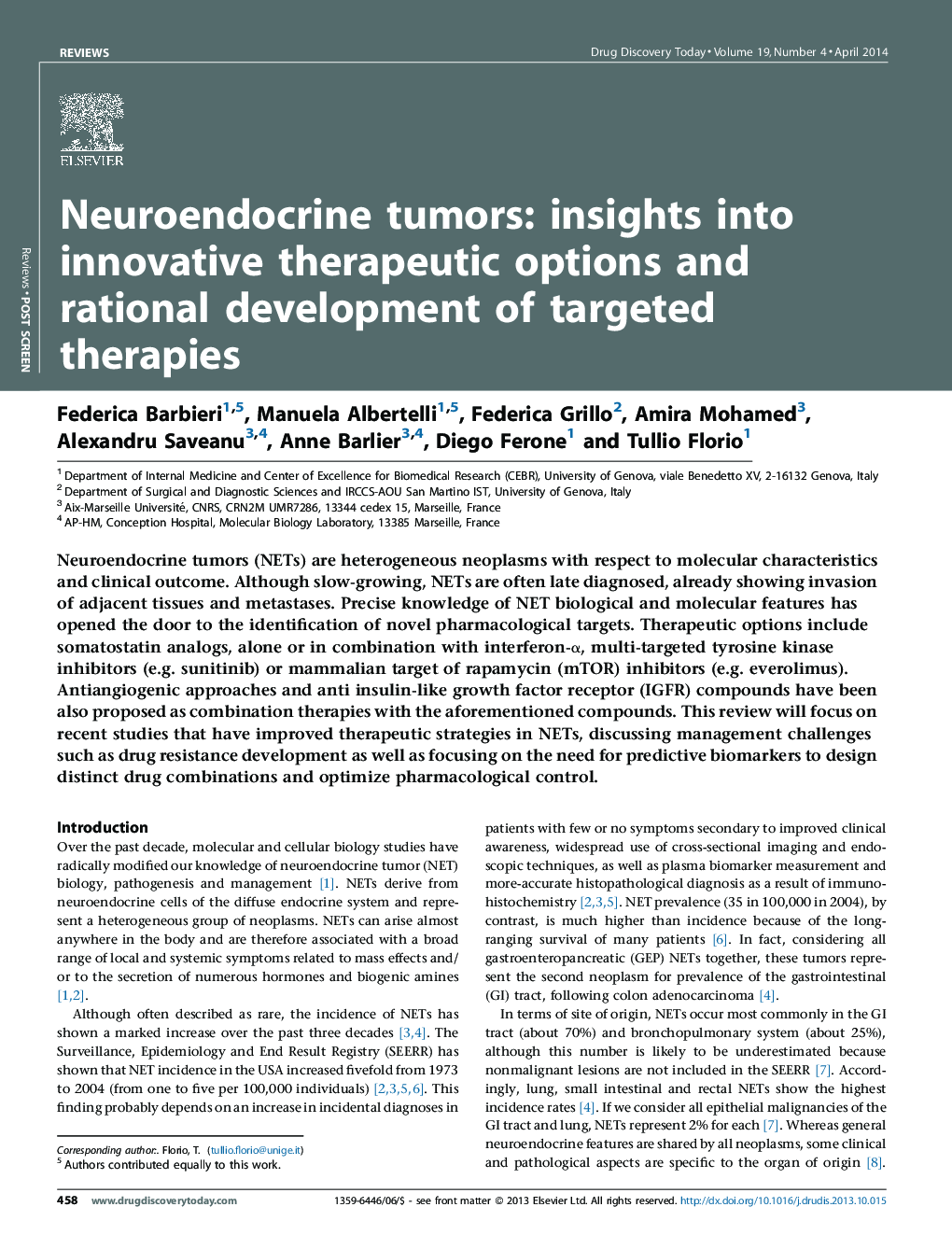| کد مقاله | کد نشریه | سال انتشار | مقاله انگلیسی | نسخه تمام متن |
|---|---|---|---|---|
| 2081291 | 1080007 | 2014 | 11 صفحه PDF | دانلود رایگان |
• Novel therapeutic options are crucially needed for relatively rare but deadly NETs.
• Somatostatin analogs control tumor growth and symptoms in selected NETs.
• Dysfunction of the VEGFR/PDGFR and mTOR pathways is a crucial event.
• Innovative targeted drugs everolimus and sunitinib are currently used in NETs.
• Drug resistance frequently emerges and combination therapy could improve efficacy.
Neuroendocrine tumors (NETs) are heterogeneous neoplasms with respect to molecular characteristics and clinical outcome. Although slow-growing, NETs are often late diagnosed, already showing invasion of adjacent tissues and metastases. Precise knowledge of NET biological and molecular features has opened the door to the identification of novel pharmacological targets. Therapeutic options include somatostatin analogs, alone or in combination with interferon-α, multi-targeted tyrosine kinase inhibitors (e.g. sunitinib) or mammalian target of rapamycin (mTOR) inhibitors (e.g. everolimus). Antiangiogenic approaches and anti insulin-like growth factor receptor (IGFR) compounds have been also proposed as combination therapies with the aforementioned compounds. This review will focus on recent studies that have improved therapeutic strategies in NETs, discussing management challenges such as drug resistance development as well as focusing on the need for predictive biomarkers to design distinct drug combinations and optimize pharmacological control.
Journal: Drug Discovery Today - Volume 19, Issue 4, April 2014, Pages 458–468
